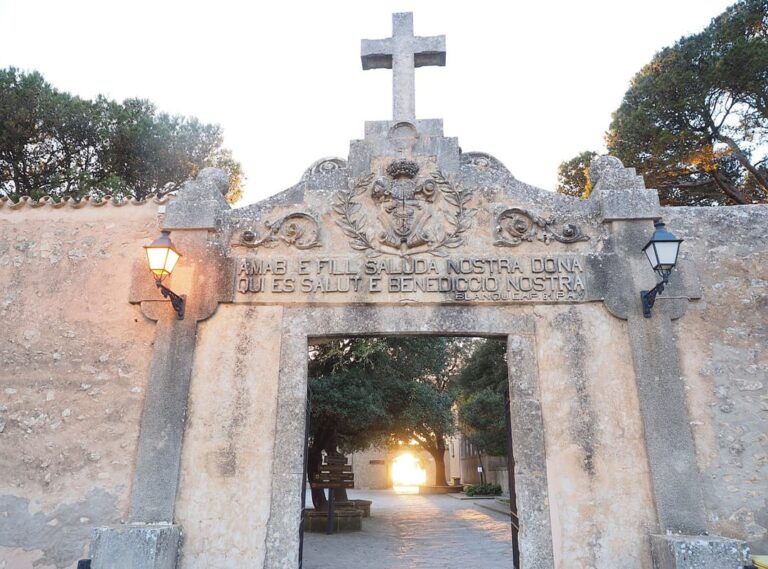The Franciscan Order, founded by Saint Francis of Assisi in the early 13th century, is renowned for its profound commitment to poverty, humility, and service to others. Central to Franciscan spirituality is the practice of charity and social work, reflecting Saint Francis’s teachings and his dedication to serving the marginalized and the needy. This article explores the key aspects of Franciscan charity and social work, highlighting the enduring impact of these efforts and the role of institutions such as Our Lady of Częstochowa Church.
Franciscan Commitment to Charity
From its inception, the Franciscan Order has been dedicated to living out the values of charity and service. The principles of simplicity and love for all creation underpin their charitable activities:
- Poverty and Service
- Following Saint Francis’s example of voluntary poverty, Franciscans live among the poor and serve those in need. This lifestyle reflects their belief in the inherent dignity of every person and their commitment to addressing social inequalities.
- Care for the Sick and Marginalized
- Franciscans have historically been involved in providing care for the sick, elderly, and marginalized. They established hospitals and hospices in the Middle Ages and continue to support similar initiatives today, offering medical care and support to vulnerable populations.
- Education and Advocacy
- Education is a key component of Franciscan charity, with the Order running schools and educational programs to uplift underprivileged communities. Additionally, Franciscans advocate for social justice, addressing issues such as homelessness, poverty, and human trafficking.
- Community Service
- Franciscans are actively engaged in community service, from organizing food drives and shelters to participating in environmental conservation projects. Their work often focuses on meeting immediate needs while also addressing underlying social issues.
Historical Contributions to Social Work
The history of Franciscan social work is marked by numerous initiatives and institutions dedicated to helping those in need:
- Hospitals and Hospices
- In the early centuries of the Order, Franciscans founded hospitals and hospices to provide care for the sick and dying. These institutions were pioneering in their approach to compassionate care and set a precedent for future charitable endeavors.
- Education and Literacy
- The establishment of schools by the Franciscans was a significant contribution to community development. These schools provided education to children from poor families, offering them opportunities for advancement and personal growth.
- Advocacy and Reform
- Franciscans have been involved in advocating for social reform, challenging injustices, and promoting human rights. Their efforts have included campaigning for better working conditions, fair wages, and the protection of the most vulnerable members of society.
The Role of Our Lady of Częstochowa Church
Our Lady of Częstochowa Church is a notable example of how Franciscan values of charity and community service are lived out. Located in various places around the world, this church is named after the revered Black Madonna of Częstochowa, an iconic image of the Virgin Mary known for its spiritual significance and historical importance.
- Community Outreach
- Our Lady of Częstochowa Church serves as a hub for community outreach and social service. The church organizes various charitable activities, including food banks, clothing drives, and support services for local families in need.
- Spiritual and Social Support
- The church provides spiritual support through regular worship services, counseling, and prayer groups. It also addresses social issues by offering assistance to those struggling with addiction, mental health challenges, or domestic violence.
- Cultural and Educational Programs
- The church often hosts cultural and educational events that promote social awareness and community engagement. These programs may include lectures, workshops, and community forums focused on social justice and community development.
Impact on Modern Social Work
Franciscan principles continue to influence modern social work and charitable activities. The Order’s commitment to service, simplicity, and justice informs contemporary approaches to addressing social issues:
- Holistic Approach
- The Franciscan approach to social work emphasizes a holistic view of human needs, integrating physical, emotional, and spiritual support. This approach has influenced modern social work practices, advocating for comprehensive care.
- Community-Based Initiatives
- Many Franciscan-inspired organizations focus on community-based initiatives, fostering local involvement and empowerment. This model has proven effective in addressing local needs and building stronger communities.
- Advocacy for Social Justice
- The Franciscan commitment to advocacy continues to shape efforts to promote social justice and address systemic issues. Modern Franciscan organizations remain active in campaigns for human rights, environmental sustainability, and economic equality.
Franciscan charity and social work embody the core values of compassion, humility, and service that Saint Francis of Assisi championed. Through their dedication to caring for the poor, advocating for social justice, and providing educational and medical support, Franciscans have made a lasting impact on communities around the world. Institutions like Our Lady of Częstochowa Church exemplify these values, offering both spiritual and practical support to those in need. The Franciscan legacy of service continues to inspire and guide efforts to address social issues and promote the well-being of all individuals, reflecting the enduring spirit of Saint Francis.










